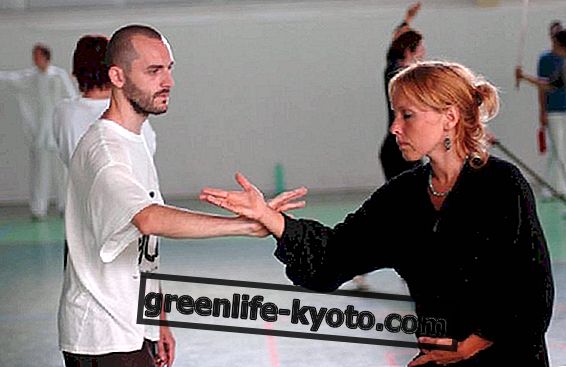
In Italy we rarely hear about Falun Gong or Falun Dafa. Sometimes you can read something on the internet, but not so often to tell the truth. More than anything else, vague rumors are circulating about it.
Falun Gong is a spiritual practice born in China that combines moral elements of Taoist and Buddhist philosophies such as compassion, adherence to truth, equanimity and temperance; practical exercises in Chinese sweet martial disciplines like qigong and taiqi; and finally the practice of meditation typical of Indian yoga.
Li Hongzi, the founder, developed this practice in China in the 1980s, then moved to the United States and continued there, avoiding what was sadly known as the persecution of Falun Gong practitioners by the communist party in the late 1990s. Chinese .
The Chinese authorities, seeing the rapid spread of this spiritual practice, began to be frightened when they realized that the number of its followers would soon exceed that of the communist party members and that, therefore, it could become a powerful political antagonist in the case of the his leader wanted to make it a sect with political aims.
To prevent this, a terrible anti-Falun Gong campaign began, complete with detentions in "re-educational" centers, real forced labor camps.
The fundamentals of Falun Gong
In his biographies Li Hongzi reveals that he learned this discipline from Buddhist monks and from both Taoist and Confucian masters. It describes Falun Gong as a " tradition of cultivating oneself centuries old ".
The main difference between Falun Gong and qigong is that in addition to the aspect of physical and energetic qigong exercises, in Falun Gong we also find a whole metaphysical, theological and cosmogonic apparatus typical of Chinese moral religions.
The triple moral axis of Falun Gong is based on the cultivation of three main virtues: compassion, adherence to truth, tolerance . These three virtues would be fundamental and unchanging cosmic attributes, although all other aspects of human morality are instead subject to change according to cultural, historical and geographical changes. Constant practice of discipline and continuous refinement and refinement of moral character are the main means of Falun Gong.
The Falun Gong exercises
The practical aspect is based on five exercises or postures, four standing and one to perform seated. These exercises would allow to reconnect the human being, whose nature is originally divine, to the universe, purifying its character and eliminating the negative karma accumulated in the previous lives.
The Falun Gong experts say they can develop particular powers as the practice progresses, similar to the siddhi of yoga. Telepathy, clairvoyance, precognition, opening of the so-called "celestial eye", a concept similar to the third eye, levitation, and other such powers are among those mentioned in the Falun Gong texts.
Falun, the symbol
The typical symbol of Falun Gong is the Falun, the wheel of the dharma or wheel of the law . It is an originally Buddhist symbol, with a central anti-clockwise svastika inside plus 4 other peripheral svastika and four taiji, Taoist symbols, with alternate red-black and red-blue colors. The entire emblem of Falun Gong is a syncretic reference to Buddhism, Taosimus and dharmic disciplines.
Controversial aspects
Among the controversial aspects of Falun Gong are two beliefs of this spiritual current. The first, the one that makes him take the greatest distance from all the other qigong schools, is the assumption that Master Li Hongzi is the only one able to establish the correct exercises, with the exclusion of all the senior teachers.
The other considerable aspect of controversy is a vision of the material universe as a battlefield between the forces of good and those of evil with lots of alien civilizations involved in repeated destructions of humanity . Although always a delirious new age scenario, it must be said that this belief is common to many ancient Buddhist and Lamaist secret schools, so it is to be considered controversial only in appearance.













